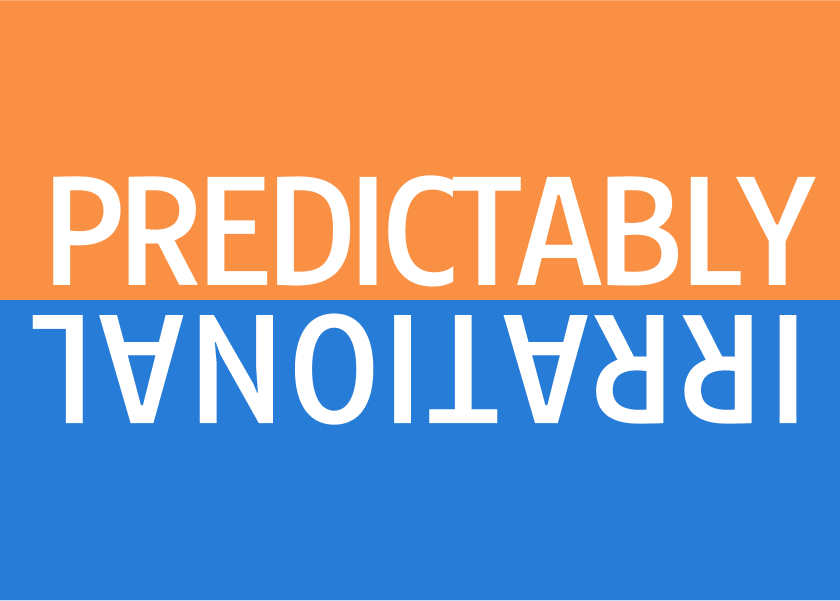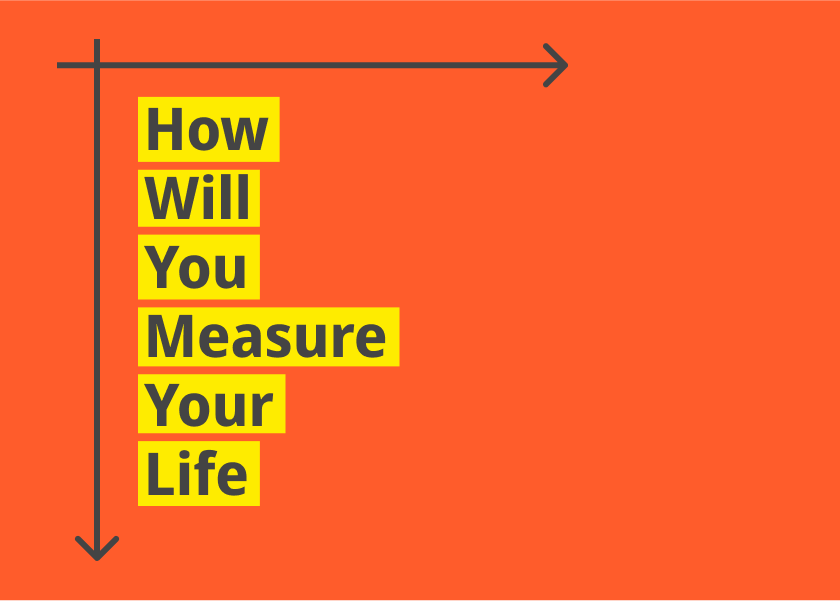Predictably Irrational by Dan Ariely - Summary
This book unmasks the hidden forces behind our decisions. Discover the truth about relativity, why FREE! is so tempting, and how expectations shape our world. You'll find out that we're in less control than we think.

The following is a summary and review of the book Predictably Irrational by Dan Ariely.
Listen to ShelfHelp's podcast summarising the book Predictably Irrational by Dan Ariely.
Are Your Decisions Really Your Own? Unlock the Hidden Forces That Shape Your Choices
Do you ever wonder why you make the choices you do? Are you truly in control, or are there hidden influences at play? Predictably Irrational delves into the subtle yet powerful forces that shape our decisions, often leading us down unexpected paths. This article summarises the book’s key insights, saving you time while equipping you with actionable tips to improve your decision-making.
Table of Contents
- About the Author
- Who Should Read This Book?
- Key Insights and Themes
- Detailed Summary
- Review
- Actionable Takeaways
- FAQs
- Conclusion
About the Author
Dan Ariely is a distinguished professor of psychology and behavioural economics. A fellow at the Institute for Advanced Study at Princeton, his work has appeared in scholarly journals and popular media outlets, including The New York Times, The Wall Street Journal, and Scientific American. Ariely's expertise makes "Predictably Irrational" a credible and insightful exploration of human behaviour.
Who Should Read This Book?
Predictably Irrational is for anyone who wants to understand why we make the choices we do. This includes:
- Business professionals: Learn how pricing, marketing, and social norms influence consumer behaviour. For example, understanding the "decoy effect" can help you strategically price your products.
- Consumers: Make more informed purchasing decisions by recognising the tricks our minds play on us.
- Anyone interested in psychology: Gain insights into the hidden forces that drive human behaviour and decision-making.
- Policy makers: Designing policies by understanding the irrationalities can lead to more effective and beneficial outcomes for society.
Key Insights and Themes
Here are the key takeaways from Predictably Irrational :
- Relativity: We often don't know what we want until we see it in context. Everything is relative, and we make decisions based on comparisons.
- The Power of FREE!: Zero cost is a potent motivator that can lead us to overvalue things.
- Social vs. Market Norms: Introducing money into social exchanges can undermine intrinsic motivation.
- The Influence of Arousal: Our decisions are drastically different when we're "hot" versus "cold".
- Procrastination and Self-Control: We struggle to do what we know we should, often needing pre-commitment strategies to stay on track.
- The High Price of Ownership: We overvalue what we own, leading to irrational buying and selling decisions.
- The Effect of Expectations: Our expectations shape our perceptions and experiences.
- Dishonesty: Most people are dishonest, but only a little. However, non-monetary currencies can increase dishonesty.
Detailed Summary
Introduction: How an Injury Led Me to Irrationality
Ariely discusses how a personal accident sparked his interest in irrationality. He uses experiments to examine the forces that shape our behaviour, providing insights into how we think and make decisions.
Chapter 1: The Truth About Relativity
Relativity influences our perceptions. People don't know what they want until they see it in context.
- The Decoy Effect: Ariely uses an Economist subscription offer to illustrate how a seemingly useless option can influence our choices.
- Restaurant Pricing: Restaurants use high-priced entrées to lure customers into ordering the second most expensive dish.
Chapter 2: The Fallacy of Supply and Demand
Arbitrary coherence suggests that initial prices influence future purchasing decisions.
- Pearls: The price of Tahitian black pearls was artificially inflated through marketing.
- Social Security Numbers: Participants were influenced by the last two digits of their social security number when assigning value to items.
Chapter 3: The Cost of Zero Cost
FREE! is a powerful motivator.
- Chocolate Experiment: Lowering the price of a chocolate to free dramatically increased demand.
- Amazon's Free Shipping: Free shipping entices customers to buy additional items.
- Zero Calories: Zero-calorie products are more appealing, even if the difference is negligible.
Chapter 4: The Cost of Social Norms
Social norms and market norms operate differently.
- Effort for Payment: Offering money for tasks can decrease motivation if it violates social norms.
- Moving Furniture: Asking a friend to help move furniture is acceptable, but paying them may change the dynamic.
- Police Officers: Social norms, like duty, motivate individuals more than salary alone.
Chapter 5: The Influence of Arousal
Arousal significantly impacts decision-making.
- Experiment: Participants answered questions differently when sexually aroused.
- Condom Use: Arousal affects the willingness to engage in unprotected sex.
Chapter 6: The Problem of Procrastination and Self-Control
Procrastination prevents us from achieving long-term goals.
- Deadlines: Students with self-imposed deadlines performed better.
- Ford Motor Company: Bundling car maintenance simplified the process, reducing procrastination.
- Self-Control Credit Card: Ariely proposes a credit card that restricts spending.
Chapter 7: The High Price of Ownership
Ownership makes us overvalue what we have.
- Duke Basketball Tickets: Students who won tickets valued them much higher than those who didn't.
- Online Auctions: Bidders develop a sense of virtual ownership, driving up prices.
Chapter 8: Keeping Doors Open
Options can distract us from our main objectives.
- "Door Game": Participants wasted time exploring multiple options instead of focusing on the best one .
- University Students: Students delay choosing a major, losing focus on their studies .
Chapter 9: The Effect of Expectations
Expectations shape our perceptions.
- Beer Experiment: Knowing about balsamic vinegar in beer influenced taste perception.
- SoBe Drink: Hype and price influenced the perceived effectiveness of an energy drink.
Chapter 10: The Power of Price
Price influences perceived value.
- Painkillers: Expensive painkillers are perceived as more effective.
- Placebo Effect: Expectations can alter subjective experiences.
Chapters 11 and 12: The Context of Our Character
Dishonesty is influenced by context.
- Ten Commandments: Recalling the Ten Commandments reduced dishonesty.
- MIT Honor Code: Signing an honor code statement decreased cheating.
- Non-Monetary Currency: Tokens increased cheating compared to cash.
Chapter 13: Beer and Free Lunches
Behavioural economics offers insights into irrational behaviour.
- Ordering Beer: People's choices are influenced by others, sometimes leading to less enjoyable outcomes.
- Free Lunches: Understanding irrationality can lead to mutually beneficial outcomes.
Review
Predictably Irrational is a captivating exploration of human decision-making, blending scientific research with engaging anecdotes. Ariely's writing is accessible, making complex concepts understandable for a broad audience.
Strengths:
- Engaging Style: The book is filled with amusing stories and experiments.
- Practical Insights: Offers actionable advice for improving decision-making.
- Comprehensive Research: Based on rigorous scientific experiments.
Weaknesses:
- Generalisations: Some findings may not apply universally due to cultural or individual differences.
- Oversimplification: Complex human behaviours are sometimes reduced to simple explanations.
Actionable Takeaways
How to apply these lessons in real life:
- Recognise Relativity: Be mindful of comparisons when making decisions. Ask yourself if you truly need something or are simply influenced by external factors.
- Beware of FREE!: Evaluate free offers carefully. Consider the long-term costs and benefits before making a purchase.
- Guard Social Norms: Avoid introducing money into social relationships, as it can undermine intrinsic motivation.
- Plan Ahead: Make important decisions when calm and rational, not when emotionally aroused.
- Set Deadlines: Break large tasks into smaller, manageable steps with self-imposed deadlines to combat procrastination.
- Challenge Ownership: Objectively assess the value of your possessions before buying or selling.
- Manage Expectations: Be aware of how expectations influence your perceptions. Seek objective information before forming opinions.
- Promote Honesty: Encourage ethical behaviour by reinforcing moral benchmarks and honour codes.
FAQs
- What is "Predictably Irrational" about? "Predictably Irrational" explores the hidden forces that shape our decisions, revealing how we often act irrationally in predictable ways.
- Is "Predictably Irrational" worth reading? Yes, especially if you want to understand why you make certain choices and improve your decision-making skills.
- How can I use the insights from "Predictably Irrational" in my business? By understanding concepts like relativity, the power of "FREE!," and social norms, you can design more effective pricing strategies and marketing campaigns.
- Does culture impact irrationality? Cultural factors can influence decision-making, so consider cultural nuances when applying the book’s principles.
Conclusion
Predictably Irrational offers invaluable insights into the quirks of human behaviour, providing a roadmap for making better decisions in all aspects of life. By understanding our irrational tendencies, we can take control and create a more rational and fulfilling existence.
As an Amazon Associate, ShelfHelp may earn money from qualifying purchases. Needless to say, ShelfHelp only includes affiliate links to books we recommend and think are worth your time reading.




